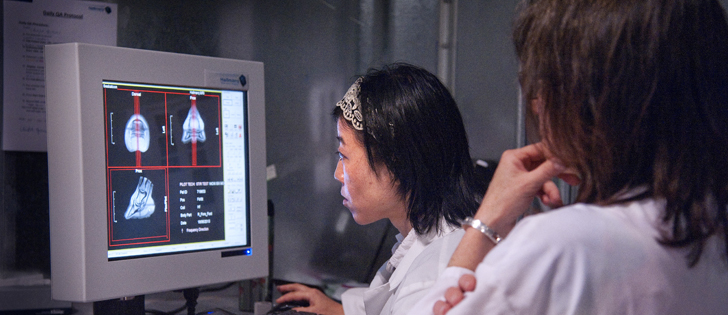The University of Calgary veterinary program is expanding by adding an extra 20 students per year starting in 2020.
Each class will have up to 50 students per year.
The government of Alberta is shifting enrollment funding of $4.7 million to the Calgary program from the Western College of Veterinary Medicine at the University of Saskatchewan.
“We know the University of Calgary is poised to expand,” said advanced education minister Marlin Schmidt in an announcement Oct. 12.
The four western provinces each pay for 20 places a year at WCVM but Alberta will handle its own applicants from now on, said dean Baljit Singh.
Read Also

Farming Smarter receives financial boost from Alberta government for potato research
Farming Smarter near Lethbridge got a boost to its research equipment, thanks to the Alberta government’s increase in funding for research associations.
“Alberta is pulling out because it has its own veterinary college and it makes no sense to invest in its own programs and then send students to Saskatoon,” he said.
“Saskatchewan will not be taking any applicants from Alberta,” he said.
Dean of the WCVM in Saskatoon Douglas Freeman said he is “deeply disappointed” in the move, which will see Alberta exit the 50 year old partnership in 2020.
“Alberta’s decision to withdraw its financial support from the WCVM, more than $8 million per year (a larger amount than highlighted by U of C officials), will certainly have an impact on the WCVM’s programs and services,” said Freeman.
The Calgary school is already expanding with a new lecture theatre, more offices and teaching areas at its clinical skills site on the northwest side of the city. More professors are also being recruited to handle the larger enrollment.
The school receives nine applications for every place it has available, said Singh.
Freeman said students from Alberta will no longer have the choice of completing a Doctor of Veterinary Medicine degree at the WCVM “where they have access to a thriving veterinary teaching hospital, a diverse caseload of small and large animal patients, specialized faculty, livestock-focused teaching and research facilities, and a range of research centres on the U of S campus.”
The U of C faculty was established in 2005 and is one of the top 50 veterinary schools in the world, said minister Schmidt.
The Saskatoon Dean says the change won’t limit the college.
“However, one province’s decision doesn’t erase all that we have built and accomplished together in the past five decades. The WCVM will continue to be Western Canada’s veterinary college, providing quality veterinary education, research and clinical expertise to the region. We will not let the loss of support from one partner jeopardize our college’s value to all western Canadians,” said the Dean.
Tony Vannelli, U of S provost and vice-president academic said that the withdrawal of one partner in the agreement is “extremely disappointing, it certainly won’t deter us from our mission to meet the needs within a dynamic profession that is essential to the economy of Western Canada.”
The WCVM has created the opportunity to develop centres such as the Vaccine and Infectious Disease Organization-International Vaccine Centre, Prairie Swine Centre, Canadian Light Source, Prairie Diagnostic Services, U of S Toxicology Centre and the Livestock and Forage Centre of Excellence and Freeman says it is unfortunate that the Alberta students will no longer be a part of that cluster.
He also highlights that the WCVM has a close relationship with that school’s College of Agriculture and Bioresources and that it is the only university in Canada offering human health sciences and vet medicine on the same campus.
Contact barbara.duckworth@producer.com or mike.raine@producer.com


















